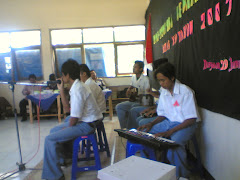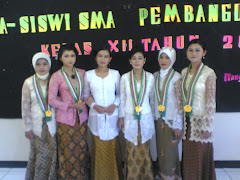Wukirsari village is one of villages in Imogiri sub district that has a lot of historical inheritances, especially Islam day inheritances, such as Kings of Mataram cemetery and Giriloyo cemetery. Those cemeteries are located on top hill. People usually call it Gunung Girilaya. On the mount, there is old tomb of Panembahan Juminah, who lived in Sultan Agung’s government day. Besides, there is public cemetery and old mosques. Historically, the Girilaya mosque was established in Hamengku Buwono I day in 1788.
The goal of Rasulan/Village Cleansing ceremony is as thank God. They realize that the Creator has given great harvest to them for a year. Besides, Cengkehan sub village people also hope that at next harvest they will get better harvest. And they also hope that they will be lead from any temptation, which can miss their harvest.
This rasulan ceremony is done after full moon, while the day changes. Principally, the ceremony is on day of legi or wage, based on Javanese’s calendar. The ceremony place is at Giriloyo mosque, Imogiri.
Before the top of ceremony is done, there was other activity, such as shalawatan, rodat and maulud. The arts activity used music set and also dancer, the persons are around 20 to 30 persons. On that arts activity, there is one activity, which is taken sacred. Maulud and rodat are taken sacred because its songs sing God’s glory and great of Mohammed. Dancers in this arts are called ledhek. The dancer’s appearance place is differed, rodat at mosque’s room and Maulud at beside mosque. Maulut is taken as sacred arts, while shalawat is taken as entertainment merely. Sometimes, in the shalawat there is Pancasila (Indonesian’s idealism) teaching. At next morning, there is kenduri (ritual meal), done with besekan (rice and its side dishes put in a box) while drinking dawet. The kenduri is lead by a rais to beg to God to wish their wishes. After the main program finishes, local people will get kenduri rice with its side dishes. The remain of that foods are given to the poor.
.jpg)
.jpg)
.jpg)